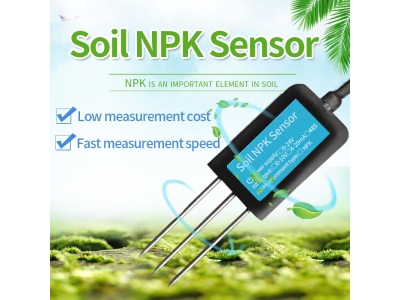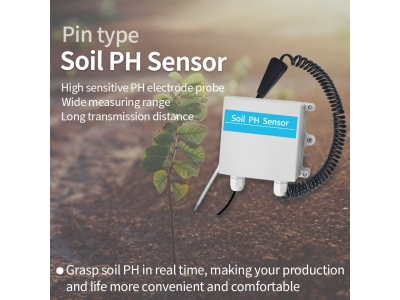Agriculture has been the backbone of human civilization for thousands of years, providing food, fiber, and fuel for our ever-growing population. However, with the increasing demands of a growing population and the challenges posed by climate change, it has become imperative to find innovative ways to increase agricultural productivity while minimizing environmental impact. Soil sensor technology and precision farming have emerged as powerful tools to unlock the potential of agriculture by providing farmers with real-time data and insights to optimize their farming practices.

Soil Sensor Technology
Soil sensor technology involves the use of sensors to monitor and analyze various soil parameters such as moisture content, temperature, nutrient levels, and pH. These sensors can be deployed in the field to provide real-time data on the condition of the soil, allowing farmers to make informed decisions about irrigation, fertilization, and other farming practices. By understanding the specific needs of their crops and soil, farmers can optimize their inputs and maximize their yields while minimizing resource wastage.
There are various types of soil sensors available in the market, ranging from simple handheld devices to sophisticated wireless sensor networks. These sensors can be installed at different depths in the soil to capture a comprehensive picture of the soil profile and its dynamics. Some sensors can even be integrated with other farming equipment such as tractors and irrigation systems, allowing for seamless data collection and automated decision-making.
Precision Farming
Precision farming, also known as precision agriculture, is a farming management concept that utilizes technology to optimize crop production while minimizing input costs and environmental impact. By integrating soil sensor technology with other advanced tools such as GPS, drones, and farm management software, precision farming enables farmers to precisely manage their fields on a granular level. This allows for the customization of farming practices based on the specific needs of each field, leading to increased efficiency and sustainability.
One of the key benefits of precision farming is the ability to apply inputs such as water, fertilizers, and pesticides in a targeted manner, only where and when they are needed. This not only reduces the overall usage of these inputs but also minimizes the risk of environmental pollution and soil degradation. Additionally, precision farming can help farmers to identify and address issues such as soil compaction, erosion, and nutrient deficiencies, leading to healthier and more productive crops.
Unlocking Agricultural Potential
The combination of soil sensor technology and precision farming has the potential to revolutionize agriculture by unlocking its full potential. By providing farmers with real-time data and insights, these technologies empower them to make data-driven decisions that can significantly improve their productivity and profitability. With the increasing availability and affordability of these technologies, farmers of all scales and resources can benefit from their adoption.
One of the key benefits of soil sensor technology is its ability to provide farmers with accurate and timely information about the condition of their soil. By monitoring parameters such as moisture content and nutrient levels, farmers can optimize their irrigation and fertilization practices to ensure that their crops receive the right amount of water and nutrients at the right time. This not only improves crop yields but also conserves water and reduces the risk of nutrient leaching and runoff.Precision farming, on the other hand, allows farmers to take a proactive approach to managing their fields. By using data from soil sensors, GPS, and other sources, farmers can create detailed field maps that highlight areas of variability in soil and crop conditions. This enables them to tailor their farming practices to the specific needs of each area, leading to more uniform and consistent crop growth. Additionally, precision farming can help farmers to monitor the impact of their practices over time, allowing for continuous improvement and optimization.
Case Studies
The impact of soil sensor technology and precision farming can be seen in numerous case studies from around the world. In the United States, for example, the adoption of precision farming technologies has led to significant improvements in crop yields and resource efficiency. According to a study by the United States Department of Agriculture, farmers who adopted precision farming practices saw an average increase in corn yields of 5-10% and a reduction in input costs of 5-10%.
In Australia, the use of soil sensors and precision farming technologies has helped farmers to overcome the challenges posed by the country's arid climate. By accurately monitoring soil moisture levels and applying water in a targeted manner, farmers have been able to






